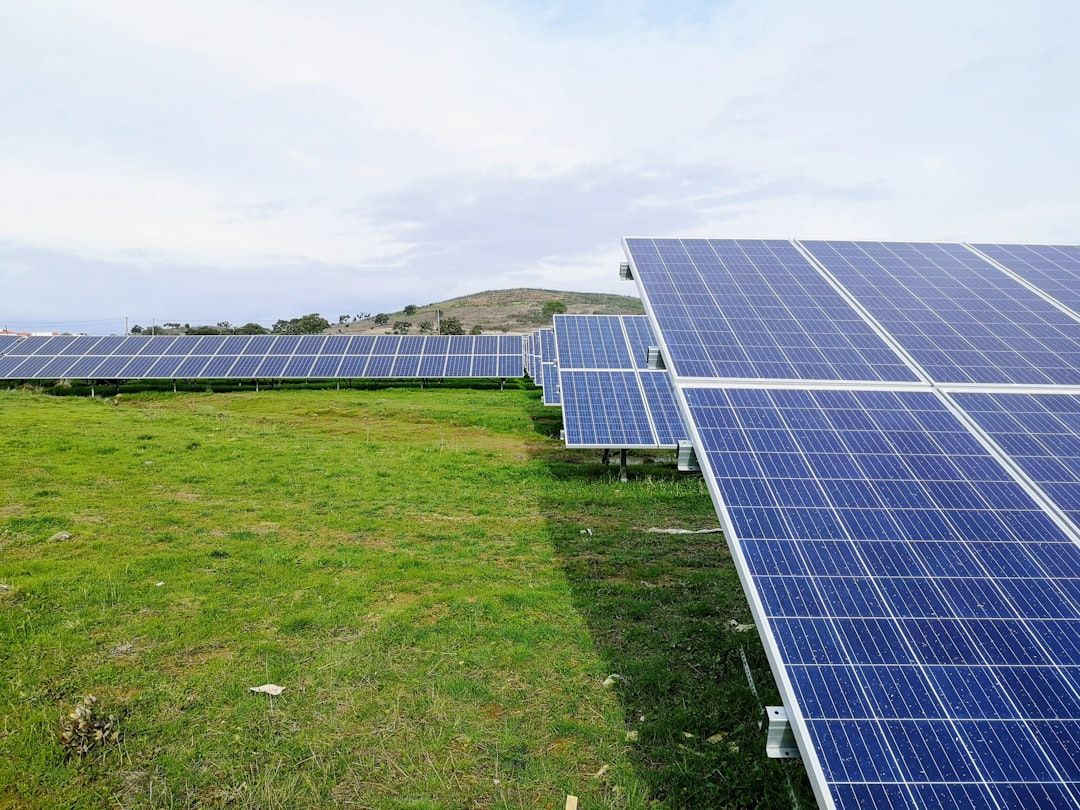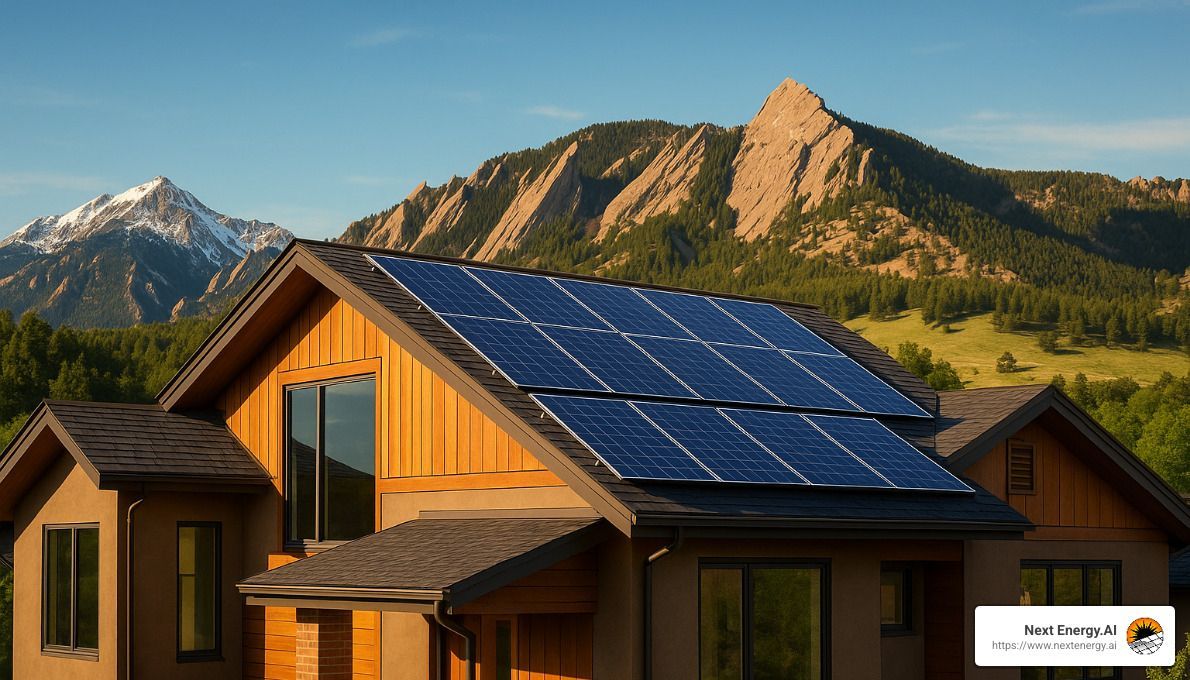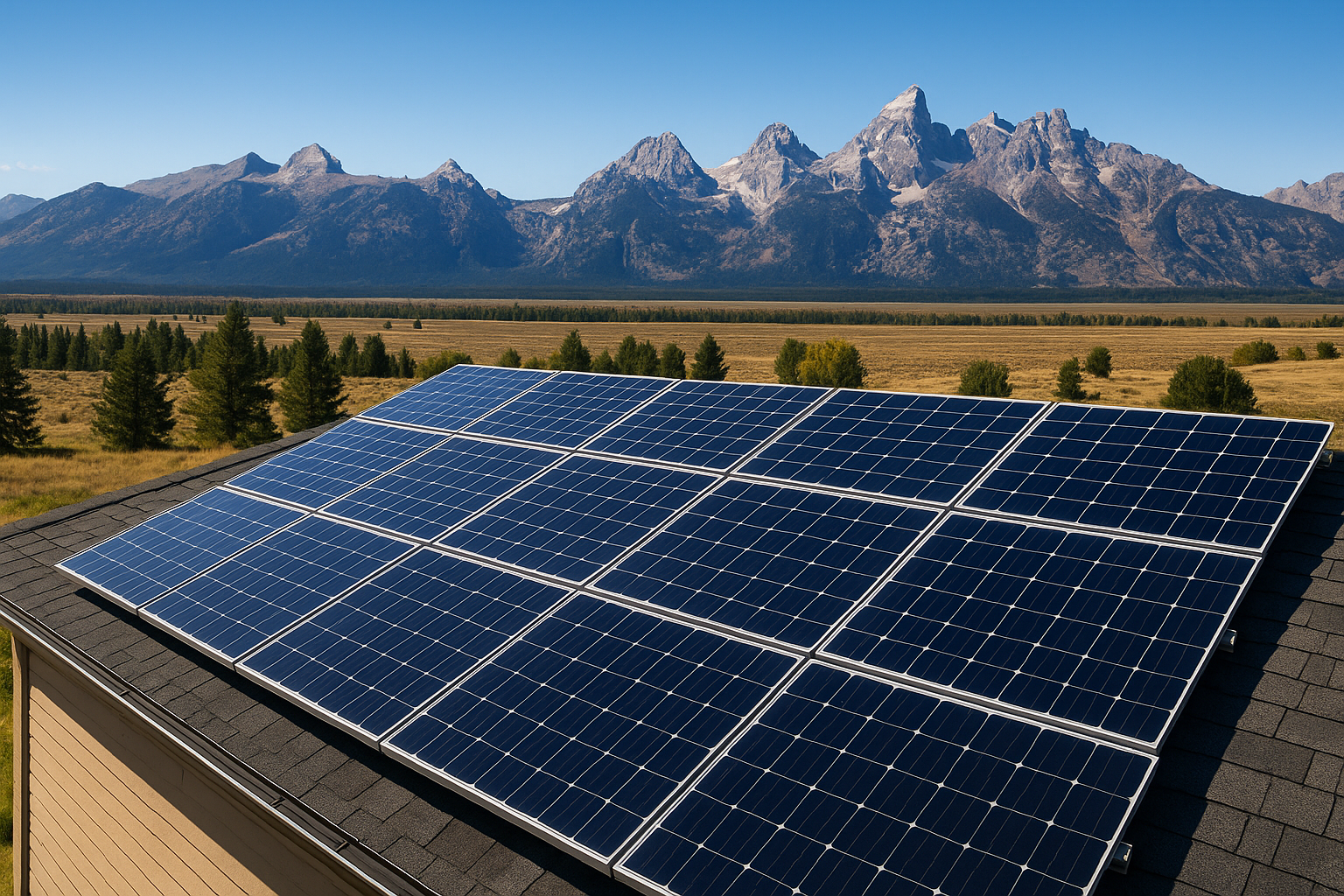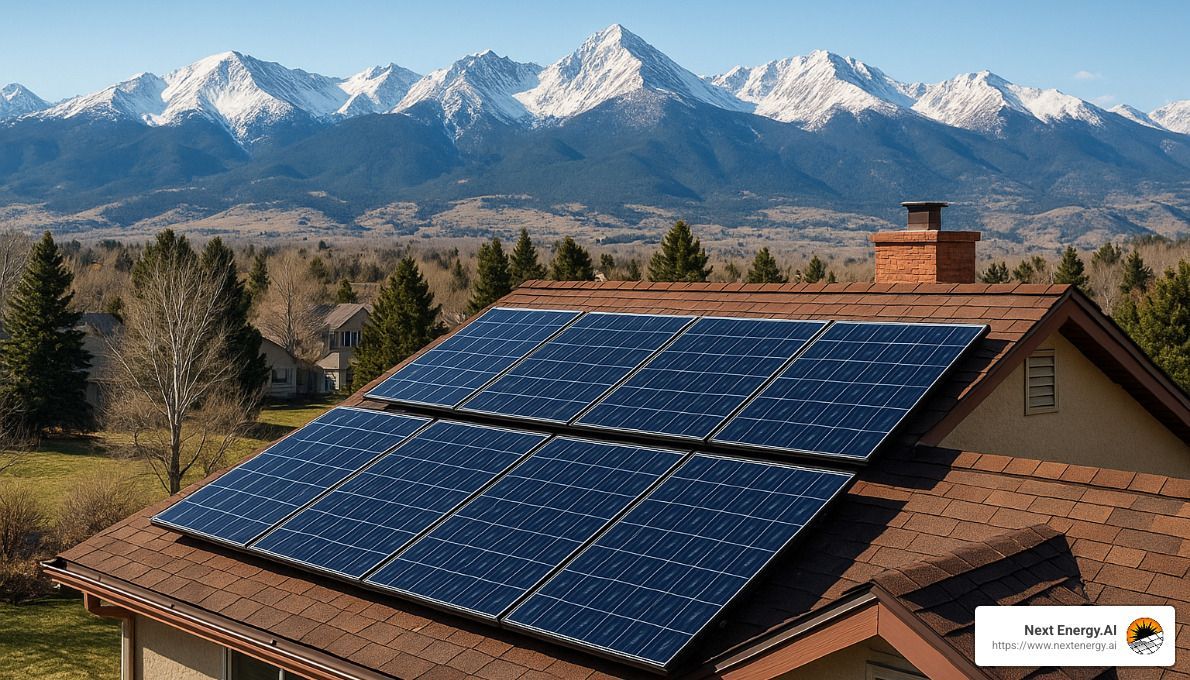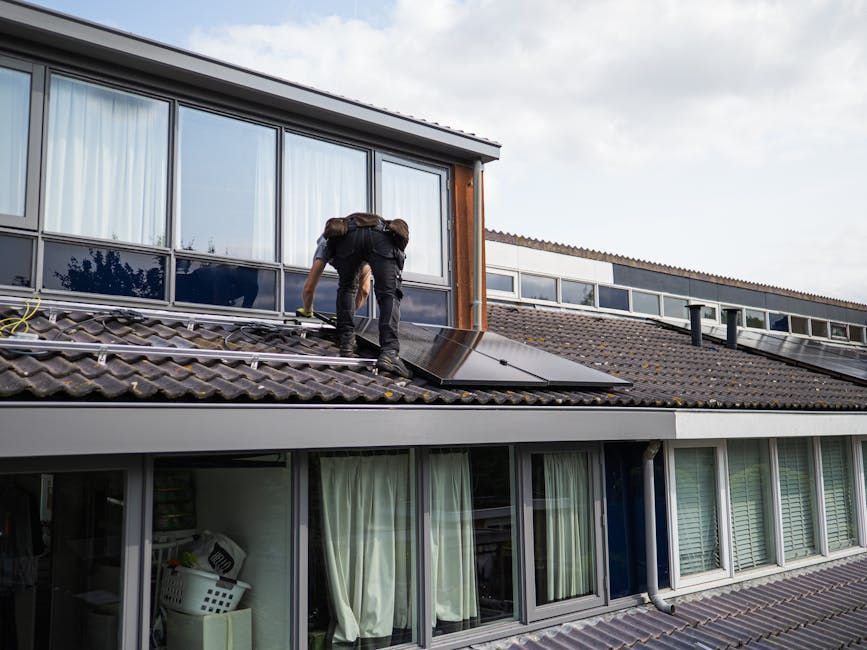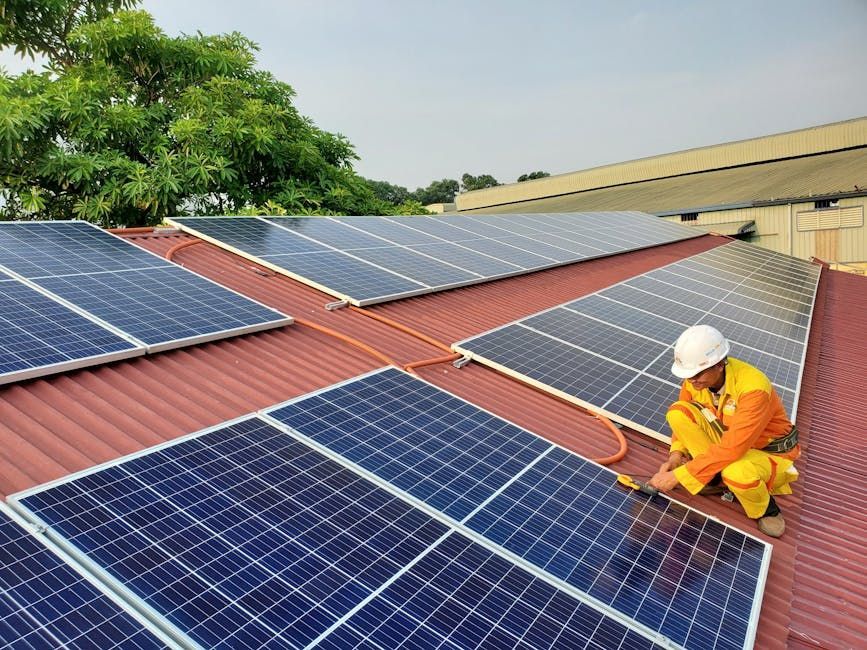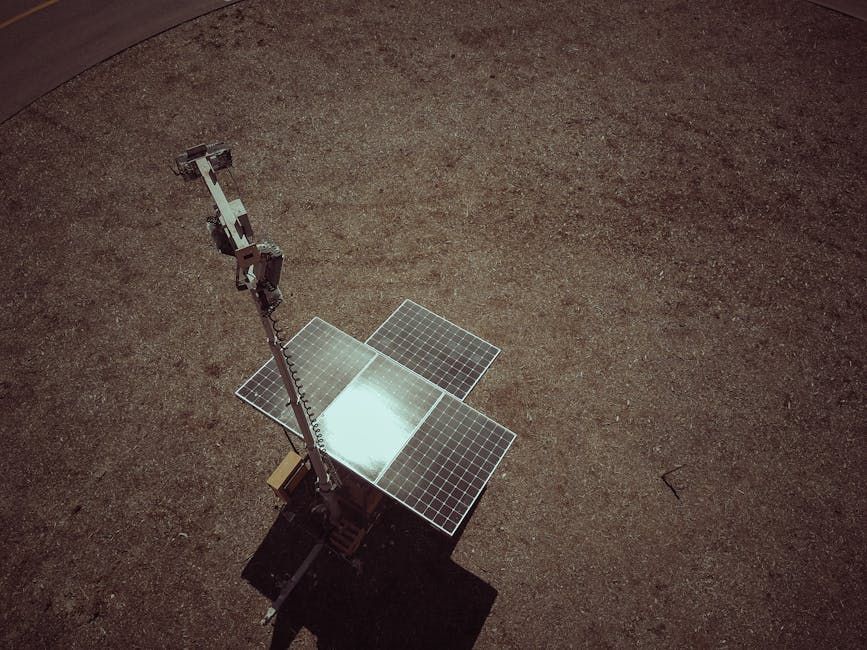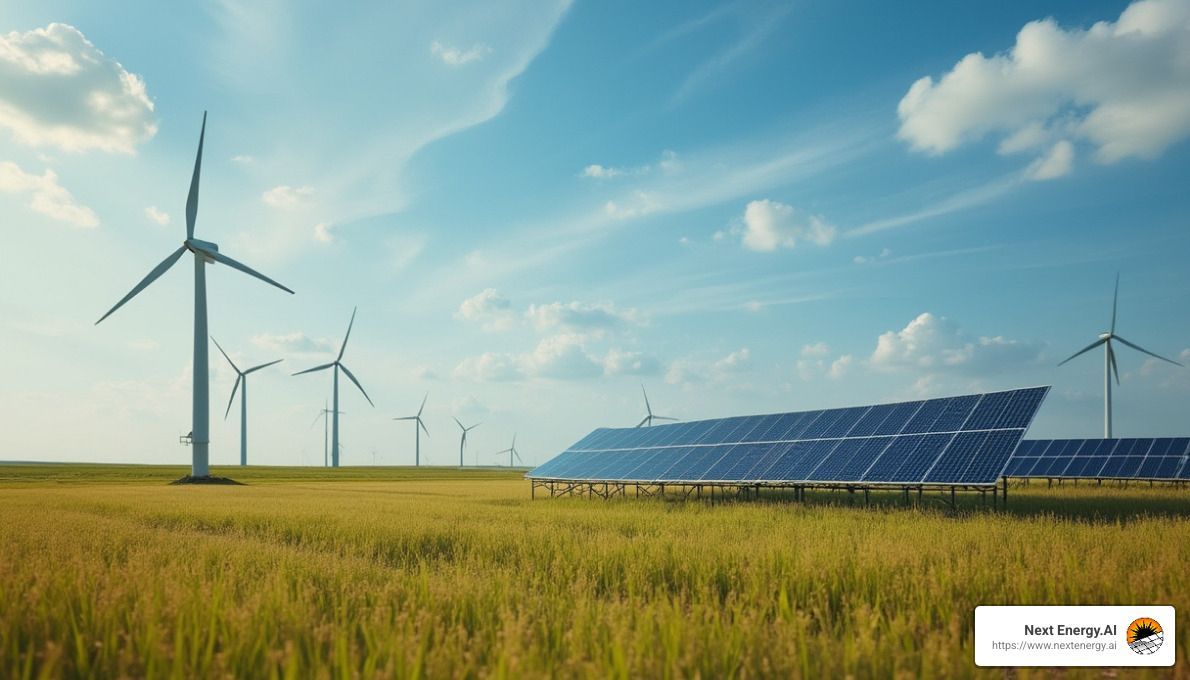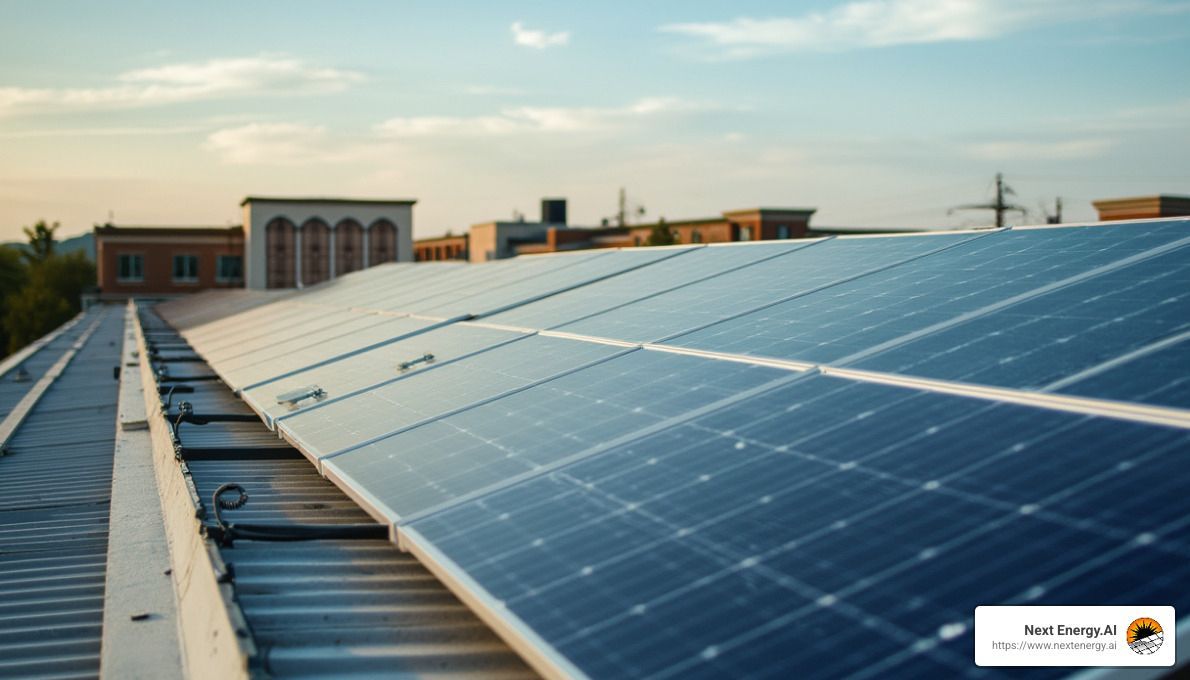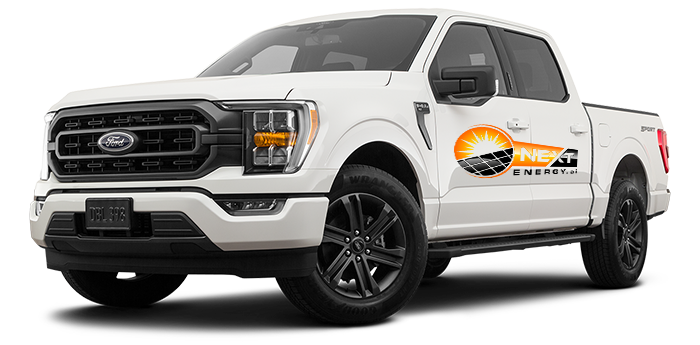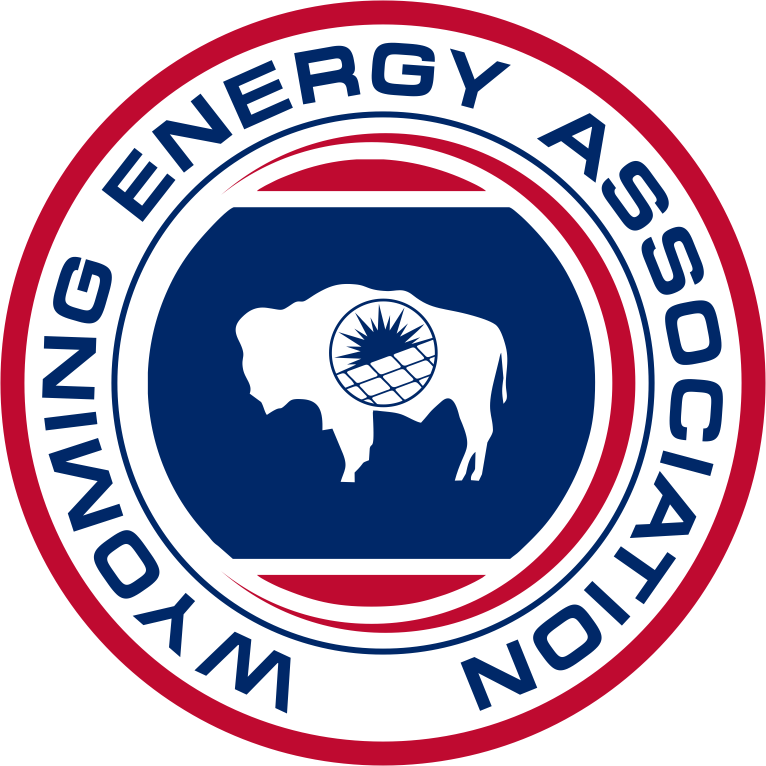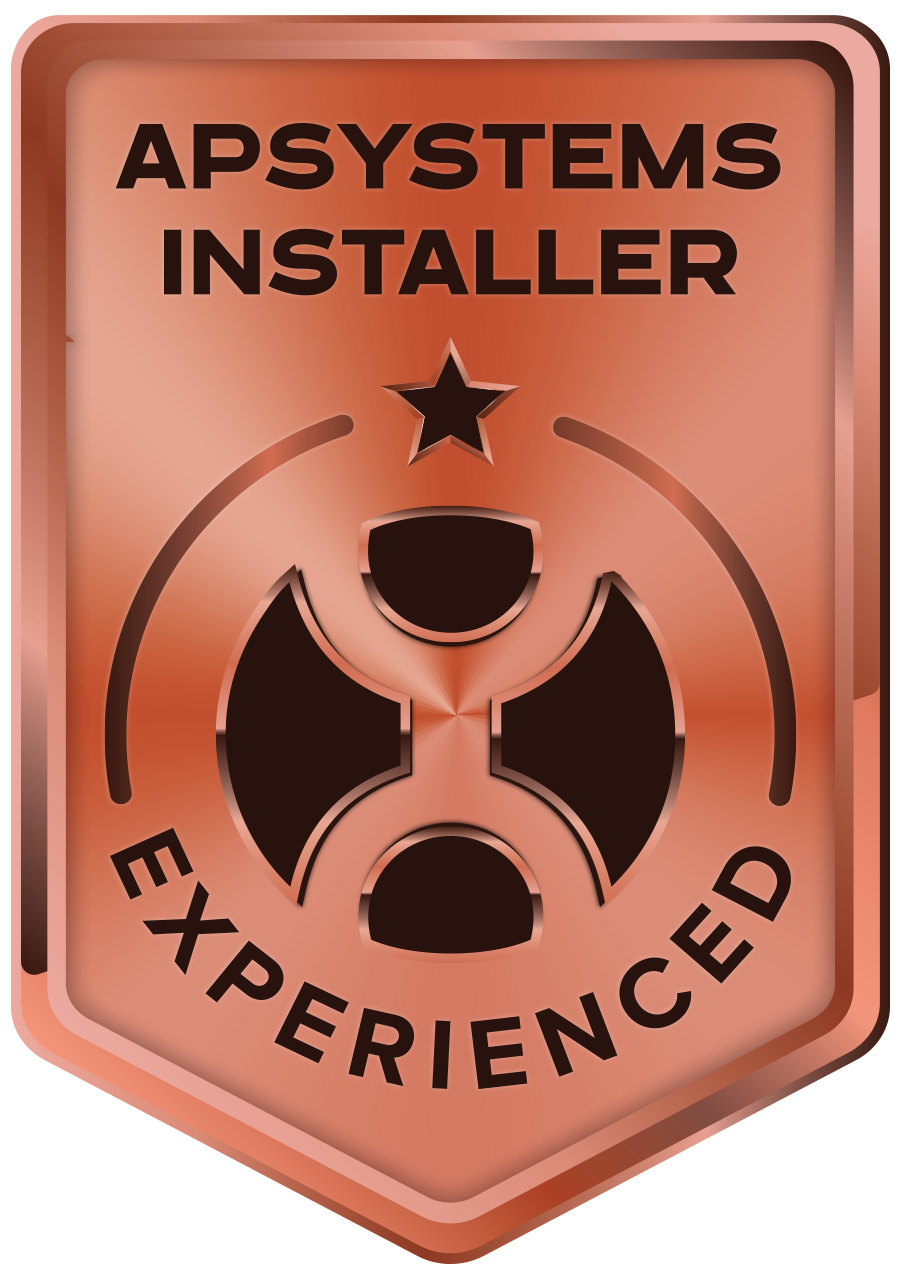The Art of Solar Panel Maintenance: A Comprehensive Guide
Maintaining solar panels is critical to maximizing their efficiency, extending their lifespan, and reducing your energy bills. Although solar panels are designed to be low-maintenance, they still benefit from periodic cleaning and inspection. Here’s a quick overview of how to keep your solar panels in top condition:
- Regular Cleaning: Remove dirt, leaves, and debris that can block sunlight.
- Inspection: Check for any physical damage or shading issues.
- Professional Assessment: Schedule routine checks with experts to ensure optimal performance.
- Monitor Output: Use apps to track energy production and detect anomalies.
Solar energy is a powerful tool in the fight against high electricity costs and carbon emissions. It promises clean, renewable energy, but the true benefits of solar systems can only be realized with proper maintenance.
I’m Spencer Gordon, and I have years of experience in the solar industry, focusing on effective methods for maintaining solar panels. This knowledge comes from helping countless homeowners steer the complexities of solar maintenance, ensuring they benefit from sustainable energy solutions.
Here's how you can make the most of solar energy:
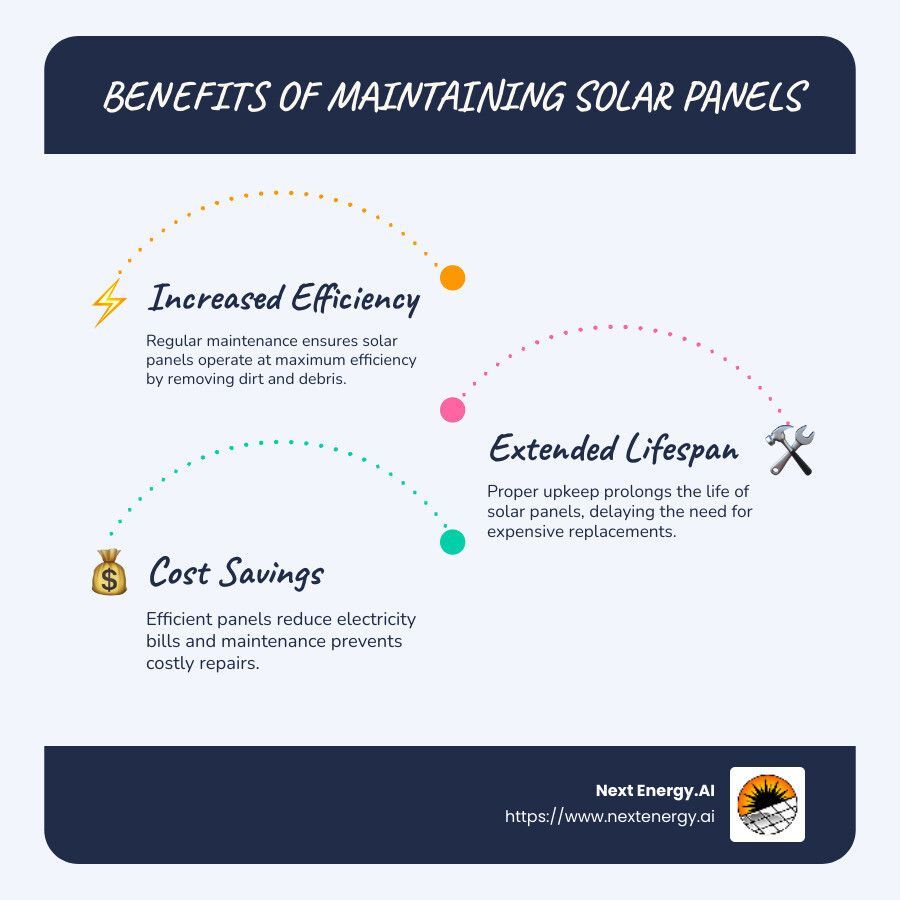
Understanding Solar Panel Maintenance
The Importance of Maintaining Solar Panels
Maintaining solar panels is crucial for ensuring they operate at peak efficiency. Regular upkeep not only maximizes energy production but also extends the lifespan of your system. Well-maintained panels can increase energy output by approximately 15%, translating to significant economic benefits over time.
Solar panels are exposed to various environmental elements. Dust, dirt, and debris can accumulate, blocking sunlight and reducing the panels' efficiency. Regular cleaning helps prevent this and maintains optimal performance. Additionally, routine inspections can identify potential issues before they become costly problems.
A case study from the Department of Energy found that solar panels withstand harsh weather conditions, including hail and hurricanes.
However, extreme temperatures can impact their performance. Panels lose efficiency by about 1% for every degree above 77°F (25°C). Regular maintenance, including elevating panels to allow air circulation, can mitigate these effects.
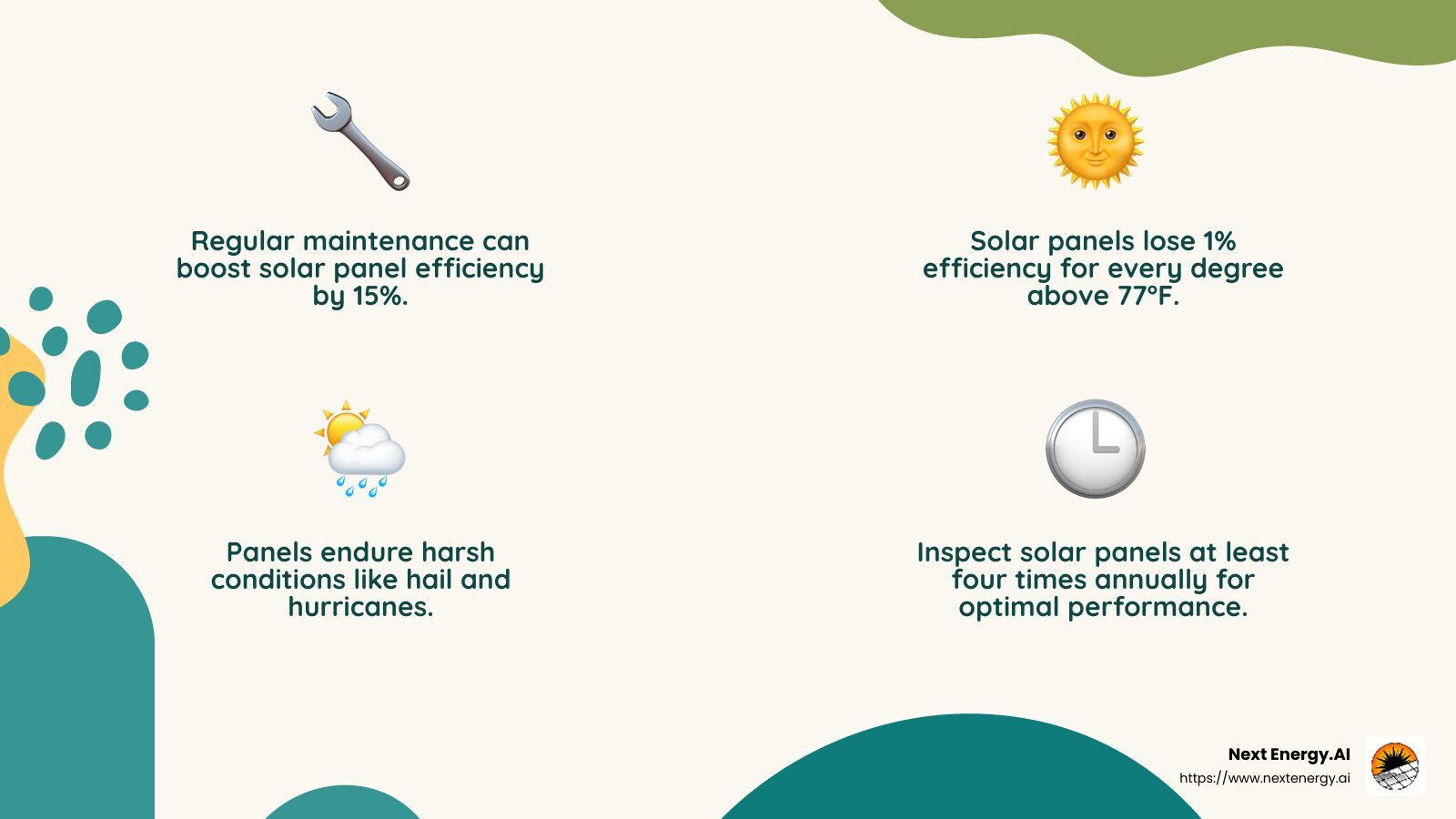
How Often Should You Maintain Solar Panels?
The frequency of maintenance depends on several factors, including location and weather conditions. Generally, solar panels should be cleaned and inspected at least four times a year. This schedule aligns with seasonal changes, ensuring panels are ready for different weather conditions.
- Spring: Clean panels to remove pollen and dust accumulated during winter.
- Summer: Check for any heat-related performance issues.
- Fall: Remove fallen leaves and debris.
- Winter: Inspect for snow accumulation and damage from storms.
Homes in areas with high humidity, frequent rain, or poor air quality might need more frequent cleaning. For instance, coastal regions may require additional maintenance due to salt in the air.
While some basic cleaning can be done by homeowners, more complex maintenance tasks should be left to professionals. They have the expertise to handle repairs and ensure safety, especially when working on roofs.
By following a regular maintenance schedule, you can ensure your solar panels remain efficient and continue to provide clean, renewable energy for years to come.
Cleaning Solar Panels: Best Practices
Keeping your solar panels clean is essential for maintaining their efficiency and maximizing energy production. Let's explore the best practices for cleaning solar panels safely and effectively.
How to Clean Solar Panels Safely
Cleaning your solar panels doesn't have to be complicated, but it does require some caution to ensure safety and prevent damage.
Tools and Techniques:
- Soft-Bristled Brush: Use a soft-bristled brush to gently remove dirt and debris. This helps prevent scratches on the panel's surface.
- Lukewarm Water: Cold water can cause thermal shock when it meets hot panels, potentially cracking the glass. Use lukewarm water to avoid this issue.
- Ground Cleaning: Clean your panels from the ground whenever possible. Climbing on roofs can be dangerous, so use tools with extendable handles to reach the panels safely.
Safety Tips:
- Clean early in the morning or late in the afternoon when the panels are cooler.
- Avoid using abrasive cleaners or high-pressure water sprays, as these can damage the panels.
- If panels are difficult to reach or you feel unsafe, consider hiring a professional.
Weather Impact on Cleaning
Weather plays a significant role in how and when you should clean your solar panels.
Rain:
Rain can be a natural cleaner for your panels, washing away dust and dirt. If your panels are installed at an angle, rainwater can effectively clear debris. However, during dry spells, manual cleaning becomes necessary.
Snow:
In winter, snow can accumulate on panels, blocking sunlight. Use a squeegee with a long handle to gently remove snow. Never use hot water, as it can crack the cold glass of the panels.
Temperature Effects:
Extreme temperatures can impact the performance of your panels. As mentioned earlier, panels lose efficiency by about 1% for every degree above 77°F (25°C). Regular cleaning and maintenance can help mitigate these effects by ensuring panels are free of obstructions and able to cool properly.
By following these best practices for cleaning and considering weather impacts, you can keep your solar panels in top condition and ensure they continue to produce clean, renewable energy efficiently.
Repairing and Monitoring Solar Panels
Maintaining solar panels involves more than just cleaning. Sometimes, repairs are necessary to keep your system running efficiently. Let's explore when to call a professional and how to monitor your solar panel health effectively.
When to Call a Professional
Damage Assessment:
Solar panels are built to withstand various weather conditions, but they aren't invincible. Hail, strong winds, or falling debris can cause damage. If you notice cracks, chips, or a drop in energy production, it's time to assess the damage.
Professional Repair:
It's crucial to hire a professional for repairs. Attempting DIY fixes can void warranties and cause further damage. Professionals can safely assess and repair panels, ensuring your system remains under warranty and in peak condition.
Warranty Considerations:
Most solar panels come with a product warranty and a power output warranty, typically lasting around 25 years. These warranties cover manufacturing defects and guarantee a certain level of performance. If your panels are under warranty, contact your installer for repairs at no additional cost.
Repair Costs:
Repair costs can vary based on the extent of the damage and whether the panels are under warranty. While minor repairs might be covered, significant damage might require panel replacement, which could be costly if out of warranty. Always consult with your installer to understand your coverage.
Safety Risks:
Repairing solar panels involves working at heights and with electrical components, both of which pose significant safety risks. Professionals have the necessary training and equipment to handle these risks safely.
Monitoring Solar Panel Health
Keeping an eye on your solar panel's health is vital for maintaining efficiency and energy production.
Energy Output Tracking:
Monitoring your solar system's energy output helps you detect performance issues early. A sudden drop in output could indicate a problem, prompting timely maintenance.
App Integration:
Many modern solar systems come with app integration, allowing you to track energy production in real-time. These apps provide insights into your system's performance and alert you to any anomalies.
Efficiency Alerts:
Set up efficiency alerts through your monitoring app. These alerts can notify you if your system's performance drops below a certain threshold, enabling you to address issues before they escalate.
By understanding when to call a professional and how to monitor your system, you can ensure your solar panels continue to operate efficiently and effectively. Regular monitoring and timely repairs not only extend the lifespan of your panels but also maximize your energy production and savings.
Next, we'll address some frequently asked questions about maintaining solar panels.
Frequently Asked Questions about Maintaining Solar Panels
Do Solar Panels Need Regular Maintenance?
Yes, maintaining solar panels is essential to ensure they operate at peak efficiency. While they are designed to be durable, regular maintenance like cleaning and inspection helps in prolonging their lifespan and optimizing energy production. Solar panels should be cleaned a few times a year, and any visible damage should be assessed promptly. This routine upkeep is crucial for catching minor issues before they become major problems.
Why Is My Electric Bill High with Solar Panels?
Several factors can contribute to a high electric bill even with solar panels. If your panels are not producing enough energy, it could be due to shading, dirt accumulation, or system malfunctions. Regular cleaning and maintenance can help improve efficiency. Additionally, check your energy consumption habits; increased usage or new appliances might be drawing more power than your solar system can supply. Monitoring systems can provide insights into your energy production and usage patterns, helping you identify any discrepancies.
Can Extreme Weather Damage Solar Panels?
Solar panels are built to withstand various weather conditions, but extreme weather can still impact them. For instance, hail can cause physical damage, while high temperatures can reduce efficiency by about 1% for every degree above 77°F (25°C). However, panels are generally resilient against rain and snow, which can help clean them naturally. If you live in an area prone to severe weather, it’s advisable to have your system inspected regularly to ensure it remains in good condition.
Regular maintenance and monitoring are key to protecting your solar investment from weather-related issues. Always consult with a professional if you suspect weather has damaged your panels.
Conclusion
In the evolving world of solar energy, Next Energy.AI stands out by integrating advanced AI technologies into solar solutions, changing traditional solar panels into intelligent energy management systems. Our AI-improved systems are designed to optimize energy usage, making them not just a sustainable choice but a smart one.
By leveraging AI, we ensure that your solar panels operate at peak efficiency, automatically adjusting to weather conditions and your unique energy demands. This results in not only optimized energy production but also significant cost savings over time. Our systems learn from your energy usage patterns, providing a custom energy solution that adapts to your lifestyle.
With locations across Northern Colorado and Southern Wyoming, we are committed to delivering top-tier solar solutions that prioritize quality, innovation, and customer satisfaction. Our goal is to empower you with clean, renewable energy that benefits both your budget and the planet.
For those interested in using the power of AI to improve their solar energy systems, we invite you to explore our comprehensive maintenance services.
Regular maintenance is crucial for maximizing the lifespan and efficiency of your solar panels, and our team is here to provide expert support every step of the way.
Find how our AI-improved solutions can transform your energy usage by visiting our solar energy system maintenance page. Let us help you make the most of your solar investment with cutting-edge technology and personalized service.
